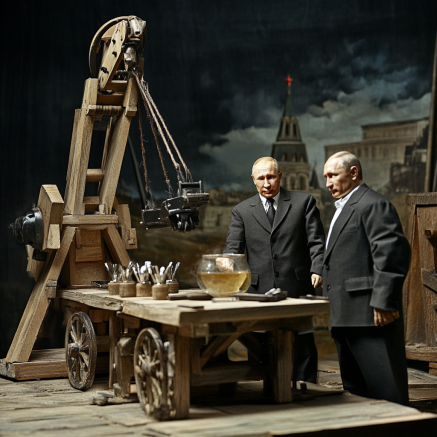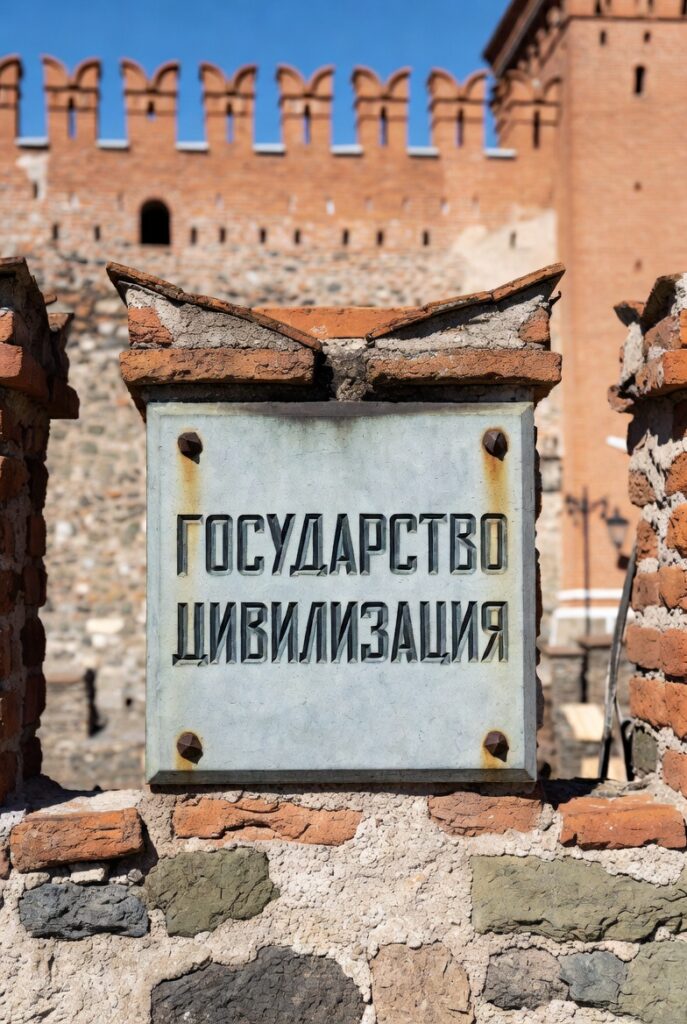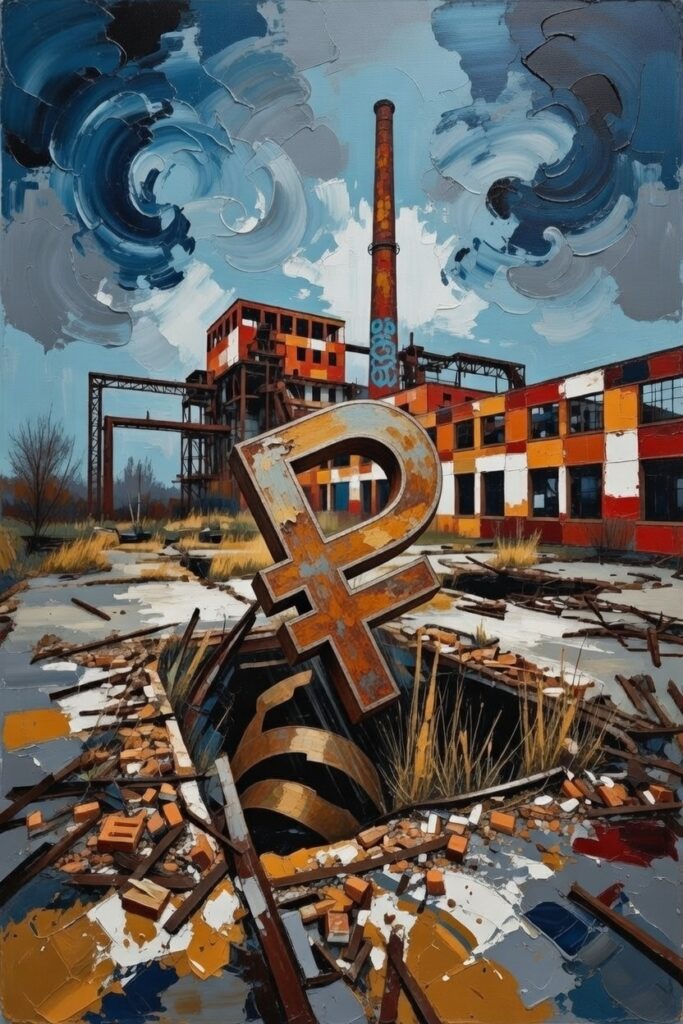The Russian leadership continues to exert nuclear pressure on Ukraine and the West. After Ukraine received permission from the United States and European countries to attack Russian territory with long-range missiles and used them, the Kremlin issued an updated version of its nuclear doctrine. According to the amendements it has just introduced, Russia may use nuclear weapons «in the event of a critical threat to the sovereignty or territorial integrity of the state.» Previously, the use of nuclear weapons was considered possible only in the event of «a threat to the existence of the state.» In reality, both the current and the previous wording are extremely vague, and the amendments to the text make little difference: if Vladimir Putin decides to use nuclear weapons, he will use them. Western countries understand this very well, which is why they reacted calmly to the updated doctrine. Subsequently, the Russian army demonstratively used an intercontinental non-nuclear ballistic weapon in the war against Ukraine firing a missile that hit Dnipro.
Although Ukraine’s use of long-range missiles does not fundamentally change the course of the war, the Kremlin is seriously considering how to respond to this move. What makes the current impasse more serious are statements by Russian leaders that the use of ATACMS, Storm Shadow and Scalp would certainly be a «red line» for Russia. The problem is that beyond this «red line» there is virtually nothing left, no other potential threat or deterrent, other than the use of nuclear weapons. The Russian army uses long-range aviation, powerful aerial bombs, modern missiles — practically the entire available arsenal except nuclear weapons. It is difficult for the Russian leadership to come up with a new strategy on the Ukrainian front, which is why it is once again raising the nuclear issue. At the same time, if nuclear weapons are used, key partners such as India and China will turn their backs on Russia, but the Kremlin has few alternatives. Moreover, Putin and his team have not been known in recent years for developing complex or thoughtful policies. The use of nuclear weapons seems unthinkable not only to the Kremlin’s partners but also to Russians themselves. But in the reality of propaganda, which largely reflects the self-image of the ruling elite, it has long looked permissible (if not the most likely). In a sense, it is the easiest step of all — it cuts the Gordian knot of all the contradictions that have by now accumulated. The Kremlin is not in control of the situation — it is relying on Trump, on China, on sheer chance. The use of nuclear weapons will restore that control, if only for a short time. Hopes that Trump will offer a solution and save the day counterbalance these desires to some extent.
Among the advisers to top management, there are those who urge their superiors to take a simple and fateful step. They can be called ultra-hawks. One of them is Sergey Karaganov, a political scientist and ideologist of the Valdai Discussion Club. After the outbreak of the full-scale war, he began actively promoting the idea that the use of tactical nuclear weapons on the Ukrainian front would save the world from a global nuclear war. His logic — the US and European countries would supposedly be convinced that Russia was not bluffing and was prepared to fight to the last man. In his latest article, he urges not to believe in negotiations with Donald Trump and to inflict a «defeat» on the US, albeit a «non-humiliating» one (Karaganov’s own terminology). Karaganov believes that «the phase of direct armed conflict must be brought to an end», but he is not talking about peace talks, he is talking about war to a victorious end. «It is necessary to continue the offensive, but without the active use of the nuclear factor the war cannot be won (or it is prohibitively expensive — we must protect our best men),» he writes, almost explicitly calling for a nuclear strike. Then it will be necessary to continue the «confrontation with the West», the friendship with the East and the Global South (above all with China), to repopulate Siberia with the inhabitants of the occupied territories of Ukraine, to introduce an ideology that the regime does not have in principle, and to inculcate people with this non-existent ideology «from kindergarten on.» Karaganov glosses over the fact that China and the Global South are unlikely to cooperate with a country that reaches for its nuclear weapons in the event of a conflict. The text does not need to go into such nuances: they complicate the decision that Karaganov considers necessary and Putin — at least for — considers possible. To convince the only reader who matters, Karaganov uses all his favourite theories and expressions: from «civilizations» to «traditional values» and «the primacy of the spiritual over the material.» Karaganov is ready to modify and turn the concept of civilisation on its head; the political scientist writes of the «revival of great civilizations». Neither Spengler nor Gumilev thought such revival possible: having passed their life cycle, they believed, civilizations simply die. But for Putin, who juggles a number of different and often contradictory ideologies, such claims may seem attractive.
Karaganov has concocted a «magic potion» for the Russian president, designed to soothe Putin and get him to press the red button. Karaganov should not be underestimated: he has long run one of Putin’s favourite formats for communicating with the outside world, the Valdai Discussion Club. Karaganov moderated a session with Putin at the St Petersburg Economic Forum. He has the opportunity to reach out to the president, and we now have a good idea of what he can knock on his door with.
«New people» in Putin’s ranks
Last time we wrote about Vladimir Putin’s meeting with Vladimir Vasilyev, leader of the «United Russia» party faction in the State Duma. Their conversation reflected well the Russian president’s understanding of the country’s party system: all the systemic parties seem to be part of a single pro-Kremlin front, arguing about details but agreeing on the main points. This week the Kremlin website published a transcript of a meeting with the leader of the «New People’s» Party, Alexey Nekhaev, although the dialogue itself appears to have taken place a few weeks earlier. All of Nechayev’s statements (as well as Karaganov’s text) were aimed at winning the president’s favor. Nechayev repeated the word «victory» several times. First he called next year’s Russian budget «a budget for victory», and then he assured that «we will certainly emerge victorious from this difficult period, also thanks to you and your work.» [In accordance with front-line procedures], Nechayev submitted proposals for the president’s approval that were likely to please him. First, to raise custom duties on goods imported from «unfriendly countries.» Second, to raise the cost of work permits for migrant workers. Both ideas may indeed please the president, as they are in line with general state policy. The exchange could not avoid some crude flattery: «Thank you for organizing the BRICS summit. I know a lot of young people were watching and there was a lot of talk. And the fact that we showed them that there is a new world, a big world — I know that inspires a lot of people. Because the whole idea that there’s a global world and „they don’t want us there“… Everybody can see now that they do. It’s a pity that Fukuyama wasn’t there. Remember, he said, remember, there is an end to history. We see that there is no end to history. On the contrary, there is a new history that is beginning, and it began in Kazan,» Nekhaev gushed.
The «New People» party positions itself as a modern party that responds to the aspirations of urban voters, although it was created with the support of the presidential administration’s political bloc. Its representatives in the State Duma oppose prohibitive laws and restrictions. But Putin’s meeting with Nekhaev shows that a conversation with the president is worth more to the future of this political entity than steps in the direction of its electorate. The parties that are part of the Kremlin’s «system politics» stand at rigid attention in front of the commander-in-chief of the party front and only then, if they have a minute, do they think about what the voters expect of them.










